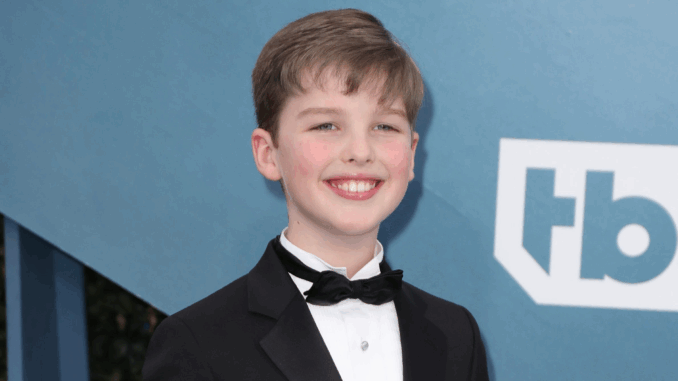
When Young Sheldon first premiered in 2017, it was marketed as a quirky, family-friendly prequel to The Big Bang Theory — a lighthearted look at Sheldon Cooper’s early years growing up in small-town Texas. What few predicted, however, was that the show would evolve far beyond its comedic roots, eventually becoming one of television’s most nuanced and emotionally rich family dramas.
As the series concluded with its seventh and final season in 2024, Young Sheldon left behind a legacy not as a spinoff, but as a standalone story — one that tackled grief, growth, faith, family, and the complicated weight of brilliance.
🧒 A Child Genius in a World That Doesn’t Understand Him
At its core, Young Sheldon began with a simple concept: what would life be like for a socially awkward, intellectually advanced child raised in a working-class household? The early seasons leaned into the comedic contrast between young Sheldon’s lofty ideas and the ordinary, often chaotic world around him.
Played with wit and innocence by Iain Armitage, Sheldon was an oddity in East Texas — obsessed with physics, allergic to nonsense, and oblivious to the emotional undercurrents of those around him. The first few seasons mined this premise for humor, positioning Sheldon as a miniature version of his adult counterpart from The Big Bang Theory.
But as Sheldon grew, so did the show.
🏡 A Family Story, Not Just a Sheldon Story
By Season 3, it became clear that Young Sheldon was not just about a prodigy’s misadventures. It was about a family trying to stay afloat in the wake of extraordinary pressure.
George Sr., initially portrayed as a bumbling father figure, was gradually revealed to be a loving, exhausted man doing his best. Mary, the deeply religious matriarch, became a portrait of inner conflict — torn between faith, motherhood, and unspoken trauma. Georgie evolved from the “dumb older brother” into a responsible young man. Missy, too, emerged as one of the show’s emotional centerpieces — witty, wise, and woefully underappreciated.
Young Sheldon transitioned from a single-character vehicle to an ensemble drama where every family member had a voice, a struggle, and a story worth telling.
😢 Embracing Sadness: The Show’s Emotional Turn

One of the boldest moves in Young Sheldon’s trajectory was its decision to embrace melancholy and realism. Fans of The Big Bang Theory knew George Sr. would eventually die. They also knew Sheldon would one day become emotionally closed-off. But watching how those things unfolded was unexpectedly heartbreaking.
Season 6 and 7 brought a shift in tone — focusing on loss, change, and the limits of control. When George Sr. passed away suddenly, it wasn’t a “very special episode” moment. It was quiet, brutal, and real. The grief that followed — especially in Mary and Missy — was raw and unresolved, showcasing how trauma lingers long after the funeral ends.
The show didn’t flinch from these moments. And in doing so, it earned a new kind of respect.
🎭 Comedy with a Soul
Despite its growing emotional weight, Young Sheldon never lost its sense of humor. Meemaw’s schemes, Sheldon’s literalism, and Pastor Jeff’s over-the-top antics continued to provide levity. But unlike many sitcoms, these moments of comedy didn’t undercut the drama — they existed alongside it, mirroring real family life where laughter and sadness coexist.
It’s this balance — between intellect and emotion, science and faith, comedy and tragedy — that made Young Sheldon stand apart from other prequels and spinoffs. It was never just fan service. It was storytelling with intention.
🧠 A Show That Grew With Its Characters — and Its Audience
Perhaps Young Sheldon’s greatest achievement is how it matured over time. Viewers who started watching as teenagers are now adults. And as Sheldon transitioned from boyhood into adolescence, the show shifted from clever jokes to deeper questions.
What does it mean to be different? Can faith and science coexist? How does a family survive when one member’s potential eclipses the others? How do parents cope with invisible pain?
These are the kinds of questions Young Sheldon asked — not with lectures, but with character moments, quiet scenes, and long, emotional arcs.
📚 A Legacy of Depth, Not Just Brilliance
In the end, Young Sheldon succeeded not because it was about a genius — but because it wasn’t only about him. It gave space to everyone around him, showing how genius affects families, how grief transforms people, and how childhood is never as simple as it seems in retrospect.
What started as a sitcom ended as a slow-burning family saga.
Not every spinoff manages to escape the shadow of its predecessor. Young Sheldon didn’t just escape it — it created a shadow of its own.
